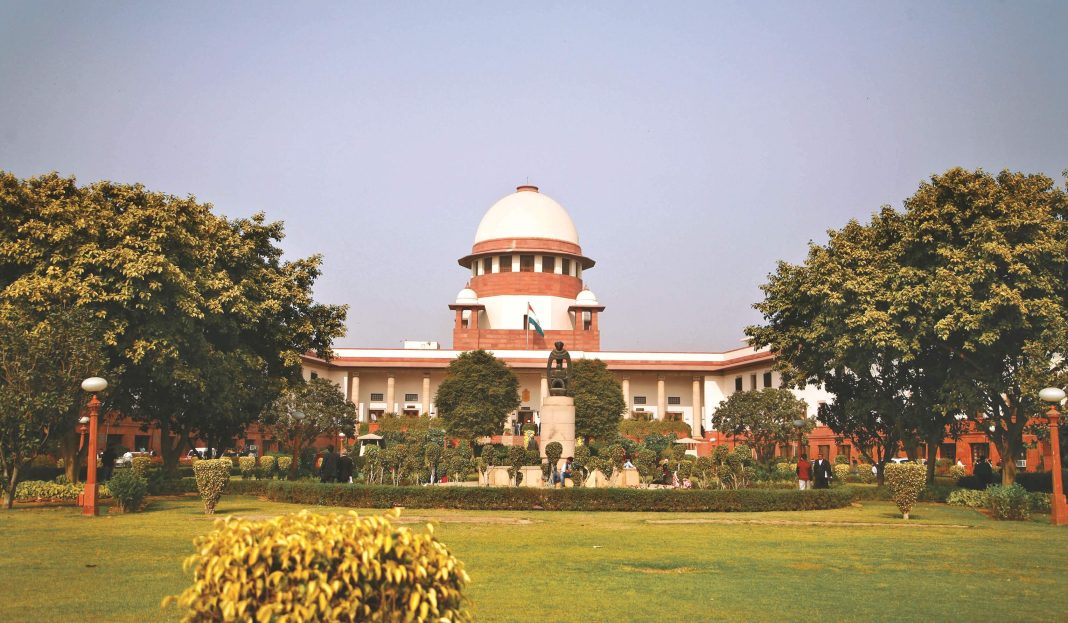Senior Advocate Kapil Sibal has termed the abrogation of Article 370 in Jammu and Kashmir as unconstitutional, stating that the Government of India did not have the power to do so.
Appearing before the Constitution Bench of Chief Justice of India D.Y. Chandrachud, Justice Sanjay Kishan Kaul, Justice Sanjiv Khanna, Justice B.R. Gavai and Justice Surya Kant on Wednesday, Sibal said the Indian Parliament cannot convert itself into the Constituent Assembly.
He said the Constituent Assembly was a political body, which was made to draft a Constitution, which was also a political document rather than a legal one. Once in place, all institutions within the framework of the Constitution were bound by its provisions.
Stating that the relationship of Jammu and Kashmir with the Constitution of India was special and unique, he wondered whether the same could be discarded abruptly. He further said that the integration of J&K into India was unquestionable.
He said the matter would consist of the following four – i) the Constitution of India; ii) the Constitution of India as applicable in J&K; iii) the Constitution of J&K and; iv) Article 370.
The Apex Court on Wednesday began hearing the 20-odd petitions challenging the Central government’s decision to strip off the special status of the erstwhile state of Jammu and Kashmir by way of abrogation of Article 370.
The five-judge Constitution Bench will hear the petitions on a day-to-day basis except on Mondays and Fridays.
The petitions challenged the Presidential Order dated August 5, 2019, which abrogated Article 370, stripping the erstwhile state of Jammu and Kashmir from its special status.
Earlier on December 14, the Apex Court had agreed to list the petitions challenging the Central government’s decision of 2019, which struck off the special status of Jammu and Kashmir by abrogation of Article 370 of the Constitution.
The matter was mentioned before a Bench of Chief Justice of India D.Y. Chandrachud and Justice P.S. Narasimha, which said that it will examine and give a date.
Earlier in September, the then Chief Justice of India U.U. Lalit had said that the petitions would be ‘certainly’ listed after the Dussehra breaks. However, the same could not be listed then.
The petitions were referred to a Constitution Bench in 2019, which comprised Justice N.V. Ramana, Justice Sanjay Kishan Kaul, Justice R. Subhash Reddy, Justice B.R. Gavai and Justice Surya Kant.
One of the members of this Bench, Justice Reddy, retired in January this year. The hearings on cases related to Article 370 commenced before the five-Judge Bench in December 2019, almost four months after the notification was issued by the Centre on August 5, 2019.
The case raised the question as to whether a reference to 7-judge bench was necessary in light of alleged divergence in the opinions expressed by two coordinate Benches of the Supreme Court in the cases of Prem Nath Kaul and Sampath Prakash.
The Constitution Bench decided on March 2, 2020 that there was no need to refer the matter challenging the Presidential Orders issued under Article 370 to a larger Bench. The petitions have not been listed since.
On August 5, 2019, the Union Government had issued an order under Article 370(1) superseding a similar order of 1954 and adding clause (4) to Article 367 (the interpretation of article of the constitution).
On the same day, the Centre brought a resolution before Parliament for the repeal of Article 370 and it was passed by both Houses under the proviso to Article 370(3) of the Constitution.
The Union of India, on August 5, 2019, further introduced and passed in the Rajya Sabha, The Jammu & Kashmir (Reorganisation) Bill 2029, bifurcating the State and creating two Union territories. It was passed by the Lok Sabha the next day. This was done under Article 3 of the Constitution.
On August 6, 2019, the President made a notification under Article 370(3) of the Constitution declaring that all the clauses of Article 370 shall as on August 6, 2019, cease to be operative except a sole new clause that was introduced by the same notification.


